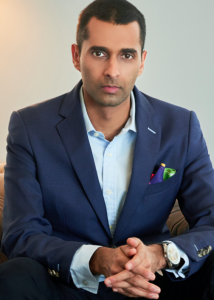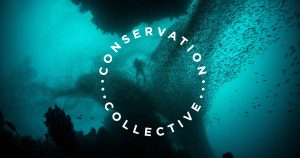Andrew Law speaks about his Speakers for Schools project.
Satish Selvanathan: Applying business principles to philanthropy
 Satish Selvanathan works in the edible oils and fats sector, operating across a number of countries throughout Asia. In 2019, he co-founded the Lanka Environment Fund (LEF) alongside Ben Goldsmith. The fund is part of the Conservation Collective, a global network of local environmental foundations pursuing grassroots conservation initiatives.
Satish Selvanathan works in the edible oils and fats sector, operating across a number of countries throughout Asia. In 2019, he co-founded the Lanka Environment Fund (LEF) alongside Ben Goldsmith. The fund is part of the Conservation Collective, a global network of local environmental foundations pursuing grassroots conservation initiatives.
Quick facts
The causes
- Environment and conservation
The giving
- Co-founder of Lanka Environment Fund
The journey
Q: What is your professional background and what got you interested in philanthropy?
A: I have worked in the private sector for my entire career, almost 21 years at this point. I have experience in investment banking and management consulting, but three years ago I went back into my family business in the edible oils and fats sector. We are working towards environmental, social and economic sustainability across our operations, so environmental considerations had been increasingly a part of my daily life before Ben and I started the Lanka Environment Fund.
From a personal perspective though, I have always been interested in the notion of conserving natural habitats. Sri Lanka is the country I was born in and where I spent the first sixteen years of my life. It is an important place to me and I have always maintained a passion for conservation work there.
The Lanka Environment Fund
Q: What is the purpose of the Lanka Environment Fund?
A: We exist to support conservation and environmental initiatives in Sri Lanka. We work with local organisations to empower them to preserve the country’s exceptional beauty and natural value. We are very clear that our role is not to execute the projects ourselves, but to facilitate those with the skills and understanding to do so.
We have a bunch of super talented, energetic, dedicated and hard-working conservationists in Sri Lanka. We are here to super-charge them with a pool of resources, time and a diversity of ideas to enable them to execute in the way that is right for the landscape in which they operate.
We believe there are four critical areas of focus for Sri Lanka and this is where we spend our time. These are: landscape conversation, marine conservation, sustainable tourism and effective waste management.
Q: What makes LEF a unique fund?
A: What we do uniquely is that we are able to give non-traditional grants. We are not an institution, so we can give grants for different lengths of time and for different purposes.
Beyond this, there can be a deficit of trust when funders give away money to organisations working in the developing world. Geographical, linguistic or cultural barriers can often mean that funders don’t trust organisations to do the right thing with their money. We are really trying to counter this by giving funders maximum peace of mind about our processes, our partners and the outcomes of our projects. I want people to be 100% comfortable when giving money to us.
Our involvement with the Conservation Collective is very helpful in this regard. It allows us to benefit from a network of competence and governance. We can make use of this best practice to ensure funds are used in the most efficient and ultimately beneficial ways.
Q: What is the biggest challenge you have faced with LEF?
A: It’s as simple as doing work in a developing country. I’m going to give you an example which, even to this day, blows my mind – it took us a year to set up a bank account. We are not here to hold money, but to give it away – and yet it still took so long! That is indicative of the pace at which some things can move in the developing world. It’s tough because it saps your motivation. That said, the struggle is part of the beauty because, if we find ways to get around problems like this, it can be an additional value-add we can give to our donors.
Approach to philanthropy
Q: What is the strategy behind your philanthropy?
A: I try to draw on a lot of the tools I have from my time working in the private sector to develop investment theses that can be effectively monitored, reported and verified. Specific and measurable outcomes are key. This ensures that people who are giving us their money have a very clear idea about how that money is going to be used. If you can bring best practice from the business world into the world of giving, you have the opportunity to scale up massively.
We don’t really believe in a “shoot for the moon” approach; we prefer to pursue incremental compounding. If you improve yourself 1% every day, you’re going to get 365% better by the end of the year – that’s huge. And it leads to outcomes that you don’t need to shoot for the moon to achieve.
Advice for philanthropists
Q: What advice do you have for those looking to get involved in philanthropy?
A: I wish I’d started sooner – a lot sooner. It is probably some of the most impactful and meaningful work that I do. It can be hard at times, especially when you are juggling a professional life and a philanthropic life. You can find that it is hard to prioritise because one literally pays for the other, but you do find a way when you start doing it. Also, I always thought that I had to be at a certain point in my life to give, but that isn’t true. There is no such thing as the ‘right time’ so you shouldn’t wait for it. Jump in as quickly as you can!

